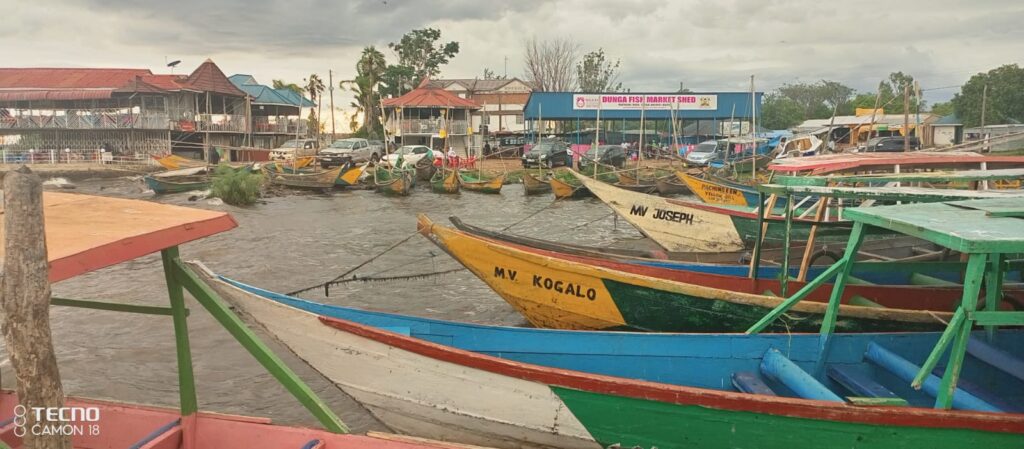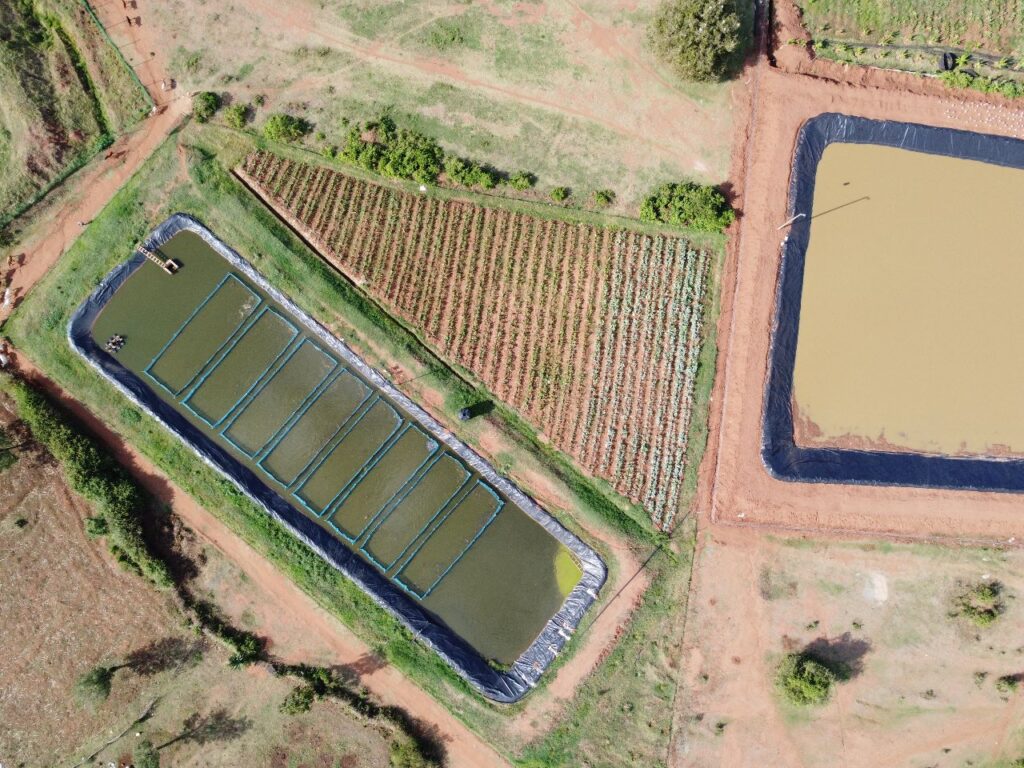In 1970s, Nelson Ochieng was one of the prolific fishermen at Sori Beach in Homa Bay County.
His prowess in identifying good fishing sites, and skills in placing his fishing gear earned him not only respect among his peers, but also a good catch every time he ventured into the lake.
“One key fish species we encountered in the lake was ‘ngege makwar’ which was the most sought by consumers,” he said.
‘Ngege makwar’ is a Luo phrase loosely translated to ‘red tilapia’ in English.
We loved it as fishermen because it was fleshy and would earn us good money
Nelson Ochieng
This was the common name for Oreochromis esculentus, an indigenous tilapia species which roared the lake.
The tilapia species was known for its great taste, and fleshy body.
“This particular tilapia was a special meal,” he said.
He went on: “We loved it as fishermen because it was fleshy and would earn us good money.”

Extinction of ‘red tilapia’
Today, Ochieng is 99-year-old, and has since retired from fishing.
But even before he threw the towel about two decades ago, the ‘red tilapia’ was already extinct from the lake.
“In fact when it was still in the lake, the other species like Nile perch and Nile tilapia were considered small fish,” he said.
The fish species disappeared in the late 1970s, spelling doom for fishermen in Lake Victoria.
Scientific reports have advanced that the tilapia species disappeared from the lake following the introduction of the Nile perch between the 1950s and 1970s.
In fact when it was still in the lake, the other species like Nile perch and Nile tilapia were considered small fish
Nelson Ochieng
Others have claimed that poor and illegal fishing gears are to blame for the disappearance for the tilapia species., as well as fishing pressure in the lake, and pollution.
Human activities such as agriculture, sand harvesting, industrial and unregulated gas emissions are said to have resulted in the shift in water chemistry hence affected the population of the indigenous species.
“The disappearance was however gradual in various parts along Lake Victoria that I don’t even recall when it disappeared completely,” said Benard Okumu, another fisherman, who is also the current Beach Management Unit chair for Nyakwara Beach.
Light at the end of the tunnel
Despite the doom and gloom, this special tilapia species may soon find its way back into Lake Victoria.
After years of research, the Kenya Marine and Fisheries Research Institute have approved an initiative aimed at reintroducing the fish back to the lake.
Victory Farms, a private hatchery at the shores of Lake Victoria is set to pilot the restocking initiative.

Dr Paul Orina, the researcher behind this initiative at KEMFRI says they have been able to get this indigenous tilapia species and other indigenous species from the wilds, domesticated them and begun to multiply them.
“We are hoping that through their (Victory Farm) hatchery, they are able to give us a space, to implement this project,” he said.
He noted that the project will see the community brought on board to understand the seed production processes.
“This is important because we will be able to work with the community through the BMUs to reintroduce the fingerlings into the lake,” he said.
In the next 12 months, we will begin reintroducing the fingerlings into the lake through the protected breeding sites, and in approximately three years from now, the fishermen will be able to notice the presence of this indigenous tilapia in their catches
Dr Orina
He says the reintroduction of the fish into the lake will be done in protected areas since the fingerlings are still young and needs secure place to mature before moving to the main waters.
According to Ceasor Asiy, the Chief Development Officer at Victory Farms, specific BMUs will be engaged in the production of fingerlings.
“The average price of a fingerling is Sh3 to Sh5 depending on the cost of production. We will need tens of millions of fingerlings in order to make an impact through this initiative,” he said.
He said the initiative will bring balance into the lake ecosystem.
Dr Orina noted that if the indigenous species are increased into the lake, accompanied by behavior change in fishing, there is likely to be a tremendous increase of indigenous species into the market, which will economically transform the lives of people.
“In the next 12 months, we will begin reintroducing the fingerlings into the lake through the protected breeding sites, and in approximately three years from now, the fishermen will be able to notice the presence of this indigenous tilapia in their catches,” added Dr Orina.

Sustaining the new stock
With Climate Change becoming a new phenomenon, Dr Orina noted that “will find a way of fitting into the changing global strengths and find ways of mitigating it by being environmental friendly.”
“If this tilapia species can be restocked, that will be a great idea because it is the original tilapia that our people knew,” noted Sam Omiti, a fisherman.
Dr John Agili, Homa Bay County Executive Member for Fisheries and Blue economy said the initiative will be a huge boost to the fishing industry.
“We promise to offer our needed support to see the success of this initiative,” he said.
He added: “We also promise to reinforce our surveillance just as we had started to end the illegal fishing activities and fishing gears.”
“We are working on regulations to protect the lake, especially the breeding sites. We are sure of bringing sanity back to the lake and thus be able to protect this specie from disappearing again.”
